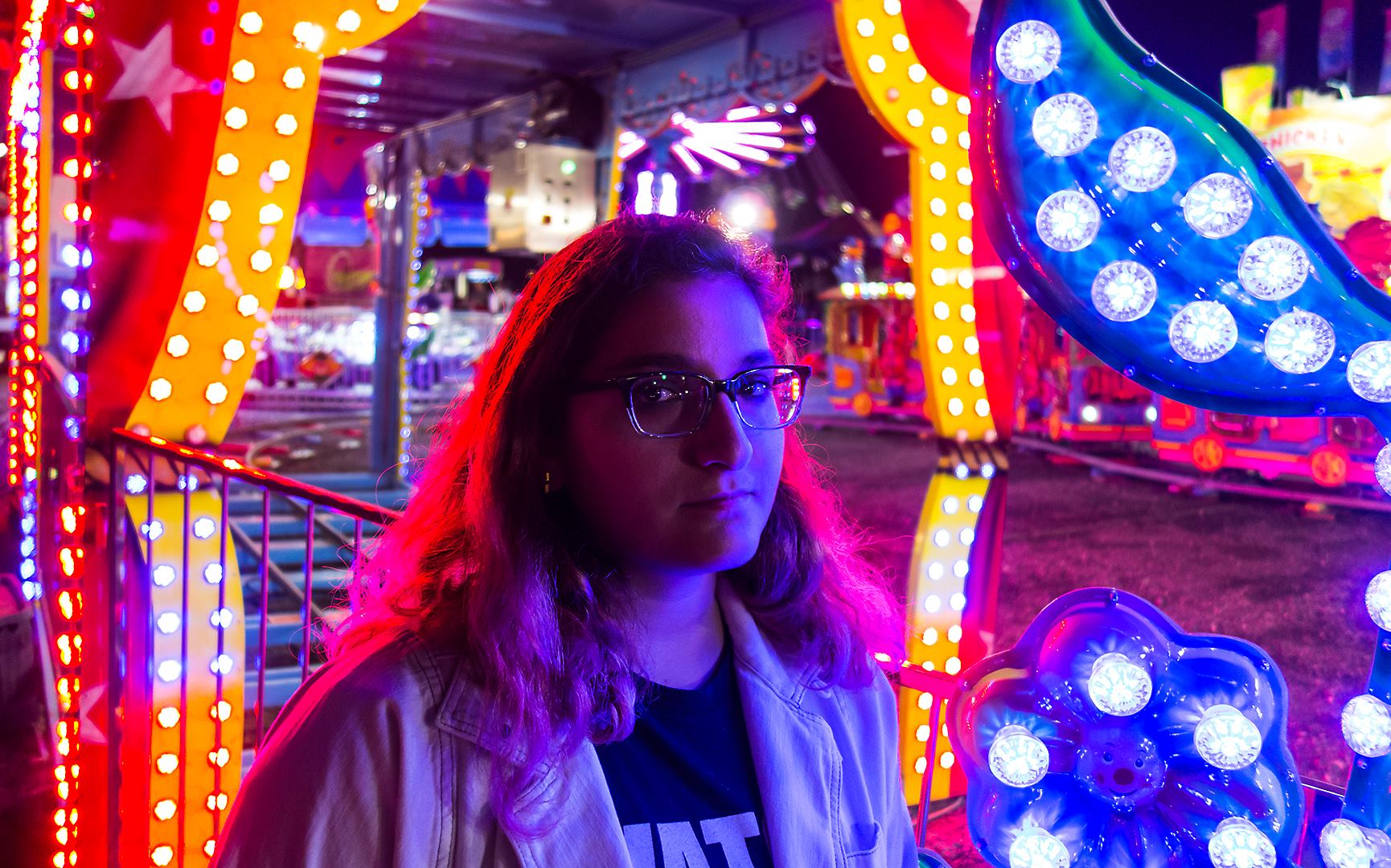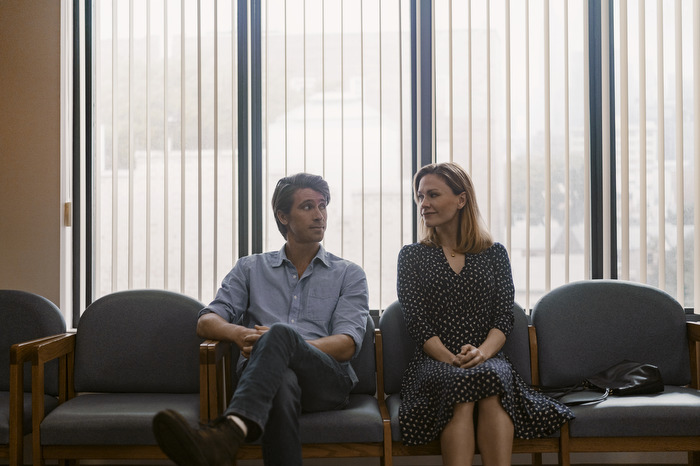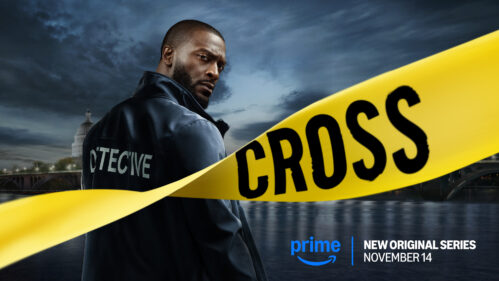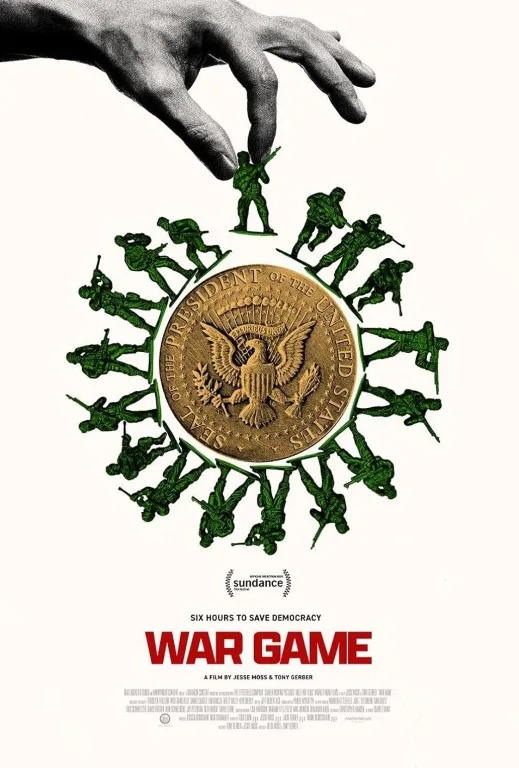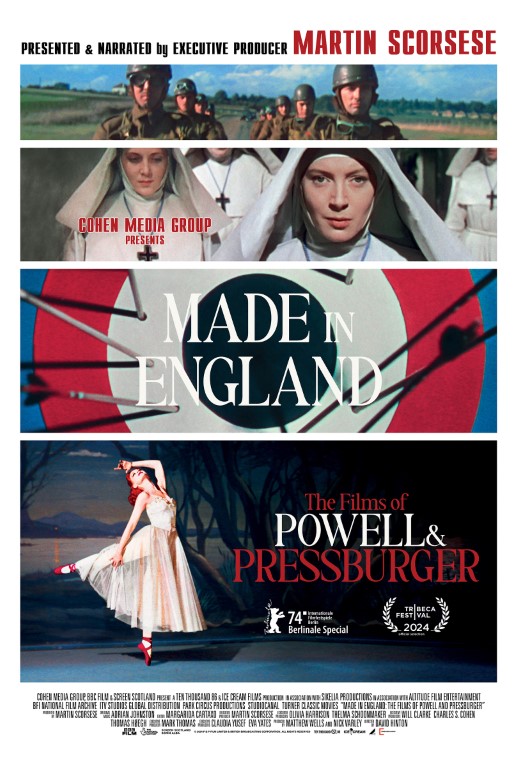Love is difficult—practically impossible, really—to define, but that's no excuse for the prevailing averageness of the second season of "Modern Love." The Prime Video series inspired by the long-running, same-named New York Times column returns for eight more episodes (all premiering on August 13) that cycle through various stages of love: tinged by grief, affected by chance, born out of rejection, and prevailing through tragedy. But the common issues here, regardless of narrative details, are what dampen and diminish the emotional impact of each 30-ish-minute episode.
Contrived situations, underwritten characters, and a lack of chemistry between many of these romantic pairings mean that "Modern Love" often drags. Perhaps for viewers, some of the plots here will be broadly recognizable, and therefore comforting in their familiarity: friends who jump into bed and then regret it; a spouse who gets sick; a chance sighting of a former lover years later. But "Modern Love" feints toward authenticity and sincerity rather than thoroughly capturing either; genuine love is hard to build in a half-hour, and most of these eight episodes don't quite pull it off. Similar to Prime Video's "Solos," "Modern Love" has germs of interesting ideas, but the brief run times don't allow for character relationships or emotional arcs to grow or breathe.

The eight episodes (all with overly wordy titles) begin with "On a Serpentine Road, with the Top Down," which stars Minnie Driver as a mother of two daughters whose husband is pressuring her to sell the sports car she's held onto for sentimental reasons. (Driver's character Stephanie is a successful doctor, but her husband worries that the family is going bankrupt? Hm.) In the second episode, "The Night Girl Finds a Day Boy," Jordan (Gbenga Akinnagbe) falls for Zoe (Zoë Chao), who has a medical condition that causes her to sleep during the day and work at night. Can their romance survive the fact that they live in essentially two separate realities?
"Strangers on a Train"—one of a few episodes from "Once," "Begin Again," and "Sing Street" writer and director John Carney, who also developed "Modern Love" for TV—pairs Lucy Boynton and Kit Harington as a medievalist and a tech marketer, respectively, who connect on a train headed to Dublin in the early days of the COVID-19 pandemic. In "A Life Plan for Two, Followed by One," Dominique Fishback plays an up-and-coming standup comedian who used the collapse of her friendship with longtime crush Vince (Isaac Powell) as creative fuel. The younger-skewing "Am I...? Maybe this Quiz Will Tell Me" follows middle schooler Katie (Lulu Wilson) as she wonders about the meaning of her feelings for classmate Alexa (Grace Edwards).
Garrett Hedlund's Spence and Anna Paquin's Isabelle unexpectedly form a friendship after their marriages implode in "In the Waiting Room of Estranged Spouses." Andrew Rannells wrote and directed the seventh episode "How Do You Remember Me?", in which 20somethings Ben (Marquis Rodriguez) and Robbie (Zane Pais) spot each other on a New York City sidewalk years after their date went awry. And the season concludes with "Second Embrace, With Hearts and Eyes Open," starring Sophie Okonedo and Tobias Menzies as exes who find their way back to each other years after their divorce.

For the most part, the central performances throughout these episodes are passable (the pairings of Akinnagbe and Chao and Okonedo and Menzies have nice, low-key chemistry), with a few being quite good (Driver's appreciably sarcastic "F**k my life"; Jack Reynor stealing "Strangers on a Train" right out from under Harington; Fishback's tangible anger as the rejected Lil). But others are tonally off: Hedlund is so stiff that he marches headfirst into unbelievability, while Boynton isn't acidic enough to convey her character's cynicism. And no matter the quality of these performances, they often lose out to the overly twee components of many of these episodes, from first-person, overly self-aware narration in both "The Night Girl Finds a Day Boy" and "Strangers on a Train" to pop culture-reference-laden dialogue that tries too hard to communicate time and place. (When will we, as a society, realize that the phenomenally aggravating final season of "Game of Thrones" essentially nullified the resonance of future allusions to the show in unrelated series and films? The time has to be soon!)
Some of these chapters could have benefited from a longer run time. "Am I...? Maybe this Quiz Will Tell Me" well captures the contrast between our online and offline lives; it's nothing "Eighth Grade" didn't already do, but Wilson is compellingly open in the episode. Hedlund and Paquin don't really spark against each other in "In the Waiting Room of Estranged Spouses," but the episode also spends valuable time trying to tackle PTSD, a tall task for an episode that can barely sell its central romance within 30 minutes. But others feel overly stretched, in particular "How Do You Remember Me?", which is so reliant on its back-and-forth editing to convey the characters' contrasting recollections of their only date that it loses any sense of natural rhythm. All in all, the imbalance of "How Do You Remember Me?" is indicative of the series' intermittent ability to stretch an idea into an episode, and then stretch that episode into insight.
Also like "Solos," this season of "Modern Love" was affected by COVID-era restrictions, with episodes that filmed in New York state and Dublin, Ireland. But the lack of technical creativity is a noticeable distraction. The green screen is eye-searingly conspicuous, imagined sequences are slightly embarrassing, and an over-reliance on flashbacks signals an awareness that the dialogue isn't doing quite enough work to communicate the details or dynamics of these relationships in the present. "Modern Love" is easy to watch because it's so non-challenging and because it asks so little of its viewers. But it's even easier to forget.
Entire season screened for review. Season two of "Modern Love" is now available on Amazon Prime Video.
